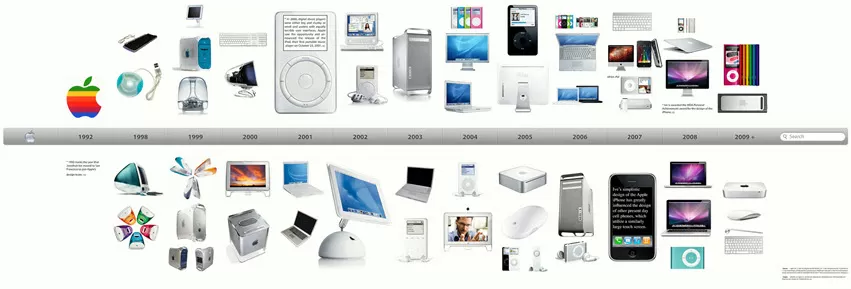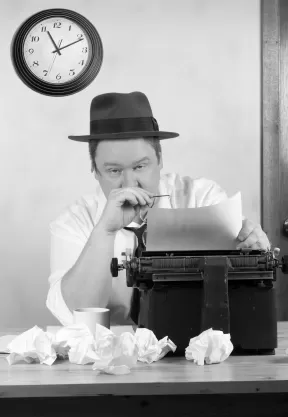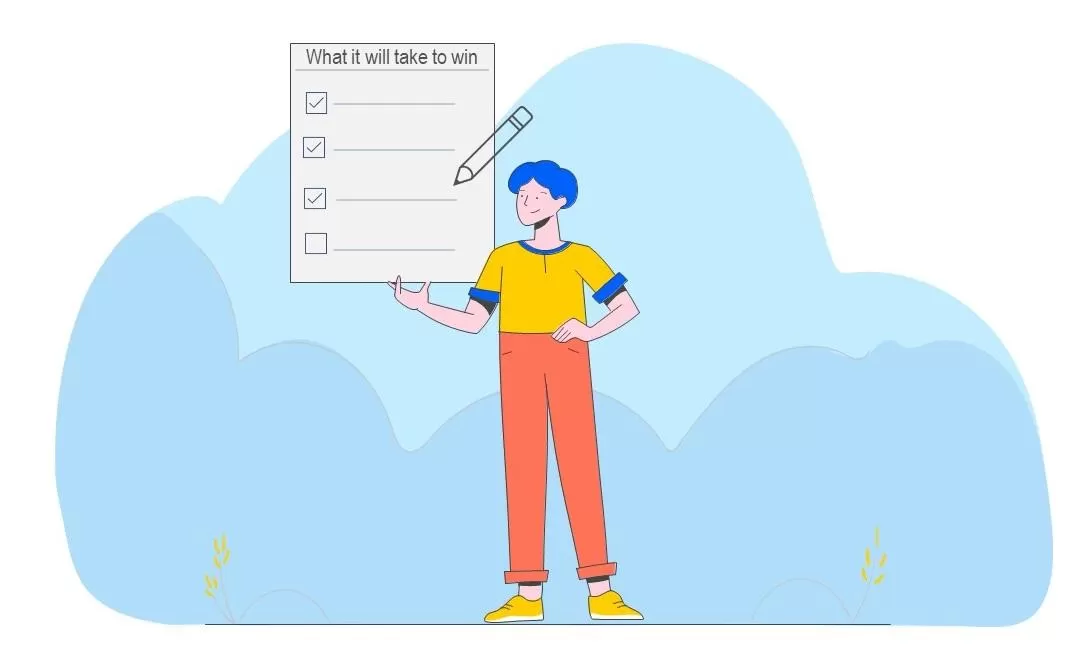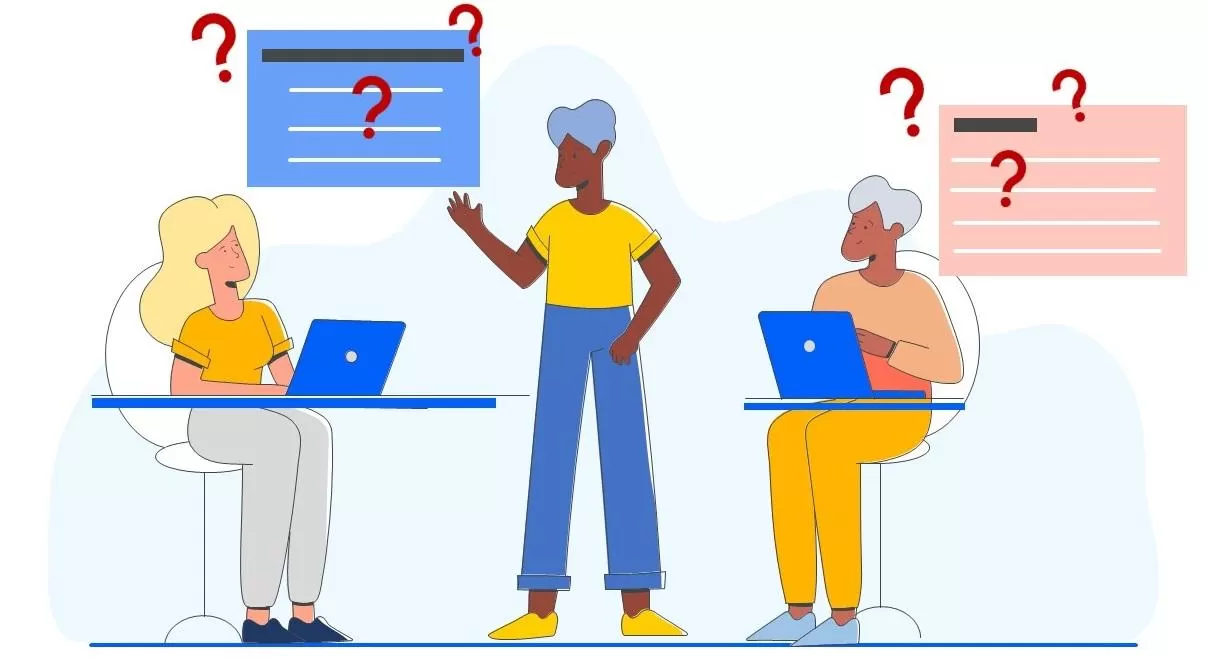Articles
-
 Proposal content planning should give a lot of guidance to proposal writers regarding what to write and how to present it. They should be able to follow the content plan like a set of instructions, that they can follow to create the right proposal on the very first draft. You can anticipate many of the things that will need to be addressed in your future proposals, based on the nature of the work that you do and how you manage it. The problem is that unless every RFP really is the same, and not
Proposal content planning should give a lot of guidance to proposal writers regarding what to write and how to present it. They should be able to follow the content plan like a set of instructions, that they can follow to create the right proposal on the very first draft. You can anticipate many of the things that will need to be addressed in your future proposals, based on the nature of the work that you do and how you manage it. The problem is that unless every RFP really is the same, and not- 0 comments
- 1,139 views
-
 Apple is famous for having a designer lead their product development efforts instead of having an engineer lead them. Apple designers obsess over what will please their customers. In many ways that exactly describes what great proposal writers do. So who designs the offering for a company that offers complex services like engineering? Should it be a subject matter expert? Someone who understands the work? Or should it be a designer, someone who understands what will please the customer? Could i
Apple is famous for having a designer lead their product development efforts instead of having an engineer lead them. Apple designers obsess over what will please their customers. In many ways that exactly describes what great proposal writers do. So who designs the offering for a company that offers complex services like engineering? Should it be a subject matter expert? Someone who understands the work? Or should it be a designer, someone who understands what will please the customer? Could i- 0 comments
- 1,456 views
-
 Most proposals are lost before the RFP is released. When you haven’t discovered what it will take to win and all you have to go by is what’s in the RFP, you are starting from a competitive disadvantage. You want to be the other company. The one that is starting from a competitive advantage. But even when you have staff “looking into it,” “researching it,” “chasing the lead,” “marketing the customer,” or whatever else you want to call it and doing it ahead of RFP release, most companies fail beca
Most proposals are lost before the RFP is released. When you haven’t discovered what it will take to win and all you have to go by is what’s in the RFP, you are starting from a competitive disadvantage. You want to be the other company. The one that is starting from a competitive advantage. But even when you have staff “looking into it,” “researching it,” “chasing the lead,” “marketing the customer,” or whatever else you want to call it and doing it ahead of RFP release, most companies fail beca- 0 comments
- 1,790 views
-
 After you identify what things matter to your customer, you can start exploring how they matter to the customer. Then you can choose what to focus on in your proposal. That’s when you find that you have choices, and those choices are what become your bid strategies. Below we show some of the things that matter to customers, explore how and why they matter, and discuss how you can use them to create bid strategies and competitive advantages, and articulate why the customer should select you. Pric
After you identify what things matter to your customer, you can start exploring how they matter to the customer. Then you can choose what to focus on in your proposal. That’s when you find that you have choices, and those choices are what become your bid strategies. Below we show some of the things that matter to customers, explore how and why they matter, and discuss how you can use them to create bid strategies and competitive advantages, and articulate why the customer should select you. Pric- 0 comments
- 9,645 views
-
 When you write a proposal, it should be based on what it will take to win. The challenge with that is that what it will take to win may be different for every bid. You can probably anticipate some of the things that are typically part of what it will take to win, but with every bid there can be differences that matter. Understanding what it will take to win is mostly based on discovering what matters: What matters to the customer? Customers have needs. But they can’t simply go buy what they want
When you write a proposal, it should be based on what it will take to win. The challenge with that is that what it will take to win may be different for every bid. You can probably anticipate some of the things that are typically part of what it will take to win, but with every bid there can be differences that matter. Understanding what it will take to win is mostly based on discovering what matters: What matters to the customer? Customers have needs. But they can’t simply go buy what they want- 0 comments
- 5,522 views
-
 The things you need to know to determine if a lead is worth pursuing are different from what you need to know to close the sale with a winning proposal. A sales process that qualifies your leads is important. It is also not enough to win. If you are addressing "Should we pursue this" and "Should we bid this" as if they are the same thing in a single meeting, it's a bad sign. Lead qualification is a determination of whether it is worth investing in the pursuit of a business lead. A qualified lead
The things you need to know to determine if a lead is worth pursuing are different from what you need to know to close the sale with a winning proposal. A sales process that qualifies your leads is important. It is also not enough to win. If you are addressing "Should we pursue this" and "Should we bid this" as if they are the same thing in a single meeting, it's a bad sign. Lead qualification is a determination of whether it is worth investing in the pursuit of a business lead. A qualified lead- 0 comments
- 2,953 views
-
 It’s hard to get an early start on a proposal, and not just because you don’t know when the RFP will be released. You often get advance notice of RFP releases. When the pursuit is a recompete, you can anticipate the release years in advance. If it's the result of a sources sought notice, request for information (RFI), customer forecast, or other announcement, you may get a notice a month or so in advance. So what do you do? With the time you have available, how can you maximize your win probabil
It’s hard to get an early start on a proposal, and not just because you don’t know when the RFP will be released. You often get advance notice of RFP releases. When the pursuit is a recompete, you can anticipate the release years in advance. If it's the result of a sources sought notice, request for information (RFI), customer forecast, or other announcement, you may get a notice a month or so in advance. So what do you do? With the time you have available, how can you maximize your win probabil- 0 comments
- 6,681 views
-
 Creating proposal graphics can be thought of in two parts. My friend Mike Parkinson of the 24hr Company refers to them as: • Conceptualization. Figuring out what to communicate visually and what the graphic needs to communicate. • Rendering. Drawing the graphic. Rendering is where all the artistic skills are required. But conceptualization is where you figure out what should go into the graphic and what the graphic should accomplish. Conceptualization does not require any artistic abilitie
Creating proposal graphics can be thought of in two parts. My friend Mike Parkinson of the 24hr Company refers to them as: • Conceptualization. Figuring out what to communicate visually and what the graphic needs to communicate. • Rendering. Drawing the graphic. Rendering is where all the artistic skills are required. But conceptualization is where you figure out what should go into the graphic and what the graphic should accomplish. Conceptualization does not require any artistic abilitie- 0 comments
- 2,143 views
-
 Turning the art of winning proposals into a quantifiable science is more possible than most people realize. It requires making data driven decisions. And to do that you have to thoroughly embrace performance measurement for the pursuit process. As Peter Drucker once said, “If you can’t measure it, you can’t manage it.” The trick to it is to have a process that gives you the data you need without it becoming extra work. One of the things we find when implementing the MustWin Process on PropLIBRAR
Turning the art of winning proposals into a quantifiable science is more possible than most people realize. It requires making data driven decisions. And to do that you have to thoroughly embrace performance measurement for the pursuit process. As Peter Drucker once said, “If you can’t measure it, you can’t manage it.” The trick to it is to have a process that gives you the data you need without it becoming extra work. One of the things we find when implementing the MustWin Process on PropLIBRAR- 0 comments
- 4,993 views
-
 Most proposal writing is good. But not great. Good proposal writing is not competitive. If you want to win consistently you need to write better than good, you need to write better than everyone else. Most proposal writing sounds beneficial. It attempts to make whatever you've got to work with sound good. Most proposal writing shows that the vendor is fully qualified and meets all the requirements. It’s positive. It's good. Unfortunately, good proposal writing is not competitive. Making your com
Most proposal writing is good. But not great. Good proposal writing is not competitive. If you want to win consistently you need to write better than good, you need to write better than everyone else. Most proposal writing sounds beneficial. It attempts to make whatever you've got to work with sound good. Most proposal writing shows that the vendor is fully qualified and meets all the requirements. It’s positive. It's good. Unfortunately, good proposal writing is not competitive. Making your com- 0 comments
- 1,277 views
-
 When the customer reads your proposal there are many reasons they might decide your proposal is their best alternative and select it for award. The goal of proposal writing is to enable them to reach a conclusion in your favor. Some of the reasons they might do this include: They can trust you to deliver as promised better than any alternative You know what needs to be done and how to do it better than any alternative You bring lower odds of failure or problems than any alternative You are re
When the customer reads your proposal there are many reasons they might decide your proposal is their best alternative and select it for award. The goal of proposal writing is to enable them to reach a conclusion in your favor. Some of the reasons they might do this include: They can trust you to deliver as promised better than any alternative You know what needs to be done and how to do it better than any alternative You bring lower odds of failure or problems than any alternative You are re- 0 comments
- 1,401 views
-
 People perform better when they have the right support. Teams of people perform better when their collaboration is coordinated. The proposal process is only part of what is required to optimize the performance of proposal contributors. Proposal management begins with the implementation of a formal process. But that is just the beginning. It is only part of managing what it will take to win. It takes more than defining some steps and telling the proposal team what to do to and on what schedule.
People perform better when they have the right support. Teams of people perform better when their collaboration is coordinated. The proposal process is only part of what is required to optimize the performance of proposal contributors. Proposal management begins with the implementation of a formal process. But that is just the beginning. It is only part of managing what it will take to win. It takes more than defining some steps and telling the proposal team what to do to and on what schedule.- 0 comments
- 1,721 views
-
 Companies that want to get better at doing proposals often struggle with their proposal process. They struggle with the steps. They struggle meeting deadlines. They struggle with time management. But mostly, they just struggle. Part of the reason for the all the struggles is their process. It’s not that it needs improvement. It needs replacing. And it’s not just the process that needs replacing. It’s the whole way you look at the proposal process. Proposals are not completed in steps It would be
Companies that want to get better at doing proposals often struggle with their proposal process. They struggle with the steps. They struggle meeting deadlines. They struggle with time management. But mostly, they just struggle. Part of the reason for the all the struggles is their process. It’s not that it needs improvement. It needs replacing. And it’s not just the process that needs replacing. It’s the whole way you look at the proposal process. Proposals are not completed in steps It would be- 0 comments
- 1,749 views
-
 Let’s start with the end result we’d like to achieve. A winning proposal. Now let's work backwards. In order to win the proposal we need the top score. In order to get the top score we need to build the proposal around what it will take to win: A proposal that reflects what matters to the customer in a form that follows the RFP’s instructions, is compliant with all requirements, and is optimized against the evaluation criteria, with no weaknesses A differentiated offering that the customer perc
Let’s start with the end result we’d like to achieve. A winning proposal. Now let's work backwards. In order to win the proposal we need the top score. In order to get the top score we need to build the proposal around what it will take to win: A proposal that reflects what matters to the customer in a form that follows the RFP’s instructions, is compliant with all requirements, and is optimized against the evaluation criteria, with no weaknesses A differentiated offering that the customer perc- 0 comments
- 1,376 views
-
 Your proposal process is broken. But don’t feel bad. Everyone’s proposal process is broken. And while it might be easier to accept that the proposal process can always be improved, it's better to be honest about just how broken it is. I have worked on countless proposals at a few hundred different companies. Some proposal process implementations are better than others. But all of them have serious defects and people are usually in denial about it. This doesn’t get their proposal process fixed.
Your proposal process is broken. But don’t feel bad. Everyone’s proposal process is broken. And while it might be easier to accept that the proposal process can always be improved, it's better to be honest about just how broken it is. I have worked on countless proposals at a few hundred different companies. Some proposal process implementations are better than others. But all of them have serious defects and people are usually in denial about it. This doesn’t get their proposal process fixed.- 0 comments
- 1,838 views
-
 I tend to focus on winning proposals instead of efficiency. One more win can produce enough revenue to cover the inefficiency of many proposals. If you want more revenue, you are better off focusing on winning than reducing proposal effort. Unfortunately, many organizations treat proposals as a cost instead of as an investment (let alone the core competency of the organization). Proposal costs are covered out of the overhead portion of the budget, and that’s always under pressure for reduction.
I tend to focus on winning proposals instead of efficiency. One more win can produce enough revenue to cover the inefficiency of many proposals. If you want more revenue, you are better off focusing on winning than reducing proposal effort. Unfortunately, many organizations treat proposals as a cost instead of as an investment (let alone the core competency of the organization). Proposal costs are covered out of the overhead portion of the budget, and that’s always under pressure for reduction.- 0 comments
- 6,680 views
-
 Unless your company sells a commodity, there can be great variations in the proposal process for every pursuit. It can be better to think of your proposal process as a series of goals than as a series of steps. It is not a procedure to be followed, it is a series of things to be achieved, with flexibility regarding how they are accomplished. Achieving the goals matters far more than the procedures used. Here are the six goals we use to drive everything we do, with links to the relevant portions
Unless your company sells a commodity, there can be great variations in the proposal process for every pursuit. It can be better to think of your proposal process as a series of goals than as a series of steps. It is not a procedure to be followed, it is a series of things to be achieved, with flexibility regarding how they are accomplished. Achieving the goals matters far more than the procedures used. Here are the six goals we use to drive everything we do, with links to the relevant portions- 0 comments
- 3,008 views
-
 You can't follow the steps to create a great proposal, because the steps are different every time. They aren't even steps. At best we talk about phases. But even those change, overlap, or get redefined every time. That's why most companies really just have a way of doing their proposals that isn't legitimately a process. If a process requires a certain person to run it, it's not really a process. See also: Great proposals Writing a winning proposal is really based on a flow of information, from
You can't follow the steps to create a great proposal, because the steps are different every time. They aren't even steps. At best we talk about phases. But even those change, overlap, or get redefined every time. That's why most companies really just have a way of doing their proposals that isn't legitimately a process. If a process requires a certain person to run it, it's not really a process. See also: Great proposals Writing a winning proposal is really based on a flow of information, from- 0 comments
- 4,110 views
-
 Before you can create proposal criteria, you have to understand what it will take to win Proposal Quality Validation starts with identifying what it will take to win. This is the standard used to measure quality against. The MustWin Process facilitates identifying what it will take to win by collecting the intelligence you will need during the pre-RFP phase. The MustWin Process will also guide you through preparing a list to document what it will take to win. This list is the first step in p
Before you can create proposal criteria, you have to understand what it will take to win Proposal Quality Validation starts with identifying what it will take to win. This is the standard used to measure quality against. The MustWin Process facilitates identifying what it will take to win by collecting the intelligence you will need during the pre-RFP phase. The MustWin Process will also guide you through preparing a list to document what it will take to win. This list is the first step in p- 0 comments
- 285 views
-
 There are three competing interests when wording headings for a proposal, and they are listed in priority order: Making it easy for the customer to find things in your proposal. Telling a story through your headings alone. Logically organizing what you have to say. When constructing a proposal outline: You must give using the customer’s wording the highest priority. If they have specified an outline, use their wording exactly so they can find what they will be looking for. Make it easy
There are three competing interests when wording headings for a proposal, and they are listed in priority order: Making it easy for the customer to find things in your proposal. Telling a story through your headings alone. Logically organizing what you have to say. When constructing a proposal outline: You must give using the customer’s wording the highest priority. If they have specified an outline, use their wording exactly so they can find what they will be looking for. Make it easy- 0 comments
- 304 views

